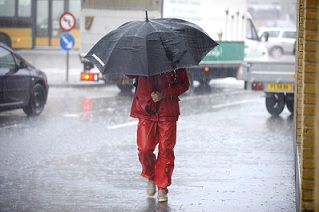Helping water utilities adapt to climate change

Related topics
Environment & climate action Innovation Austria Denmark France Germany Italy Netherlands Poland Portugal Spain United Kingdom Climate action Environment Climate action, environment, resource efficiency and raw materials Norway Australia Turkey Ukrainedate: 09/10/2014
Project: PREPARED “ENABLING CHANGE”
acronym: PREPARED
See also: CORDIS
Contact: Contact
Timely flood alerts and real-time monitoring can save lives and prevent damage to property, infrastructure and the environment. Given that climate change is likely to lead to more severe weather, the cost of not being prepared could be catastrophic. Already, the number of people affected by flooding is predicted to double over the next 70 years, with annual damages increasing from €7.7 billion to an estimated €15 billion.
Always be prepared
To help, the EU-funded PREPARED project has developed a warning system that uses weather radar systems to better predict when intense rainfall is expected to arrive in a specific area and sensors to improve the operation of wastewater, sewer and storm water systems.
The project has integrated weather radar information with data from rain gauges and other sensors, allowing water companies to better manage sewer and storm water systems when rainfall is particularly heavy and could result in overflows.
The project has also created software to help local authorities plan ahead for water shortages, drought and the rapid deterioration of water quality due to flooding.
“This project has facilitated better and more efficient decision making in the water sector,” explains project manager Adriana Hulsmann from KWR Water in the Netherlands. “Utilities always have to balance risk and cost. The use of radar information, together with the use of sensors in the sewer networks, means that they are better equipped to maximise the functionality of their infrastructure, and even postpone major investments.”
The project recommends that local authorities need to invest in in early warning systems and develop short- and long-term response strategies for urban areas. Investing now in climate change adaptation will save billions over time, says Hulsmann.
Climate change: a local issue
“While climate change is universal, responses must be taken at the regional level, given climactic variability,” says Hulsmann. “So while an integrated and coordinated approach at EU level is needed, every actor, no matter how small, needs to be on board.”
PREPARED, which ended in January 2014, focused on linking local authorities and utility companies with scientists and technology manufacturers from across Europe.
“A key element of the project was the creation of a network of water utilities from various countries, in order to learn from each other’s problems and solutions, and we certainly hope that they will continue to work together beyond the lifetime of this project,” says Hulsmann. “The global angle of the project only had benefits, as it allowed the water sector to look beyond their own problems and open up to new solutions.”
“This project was not initiated for the sake of science, but rather to address end-user problems,” says Hulsmann. “This means that the results will not end up in a drawer, but will be directly implemented by the water utilities." The experiences gained by the utilities involved have since been shared with other water providers in Europe, who it is hoped will roll out their own flood alert systems.
